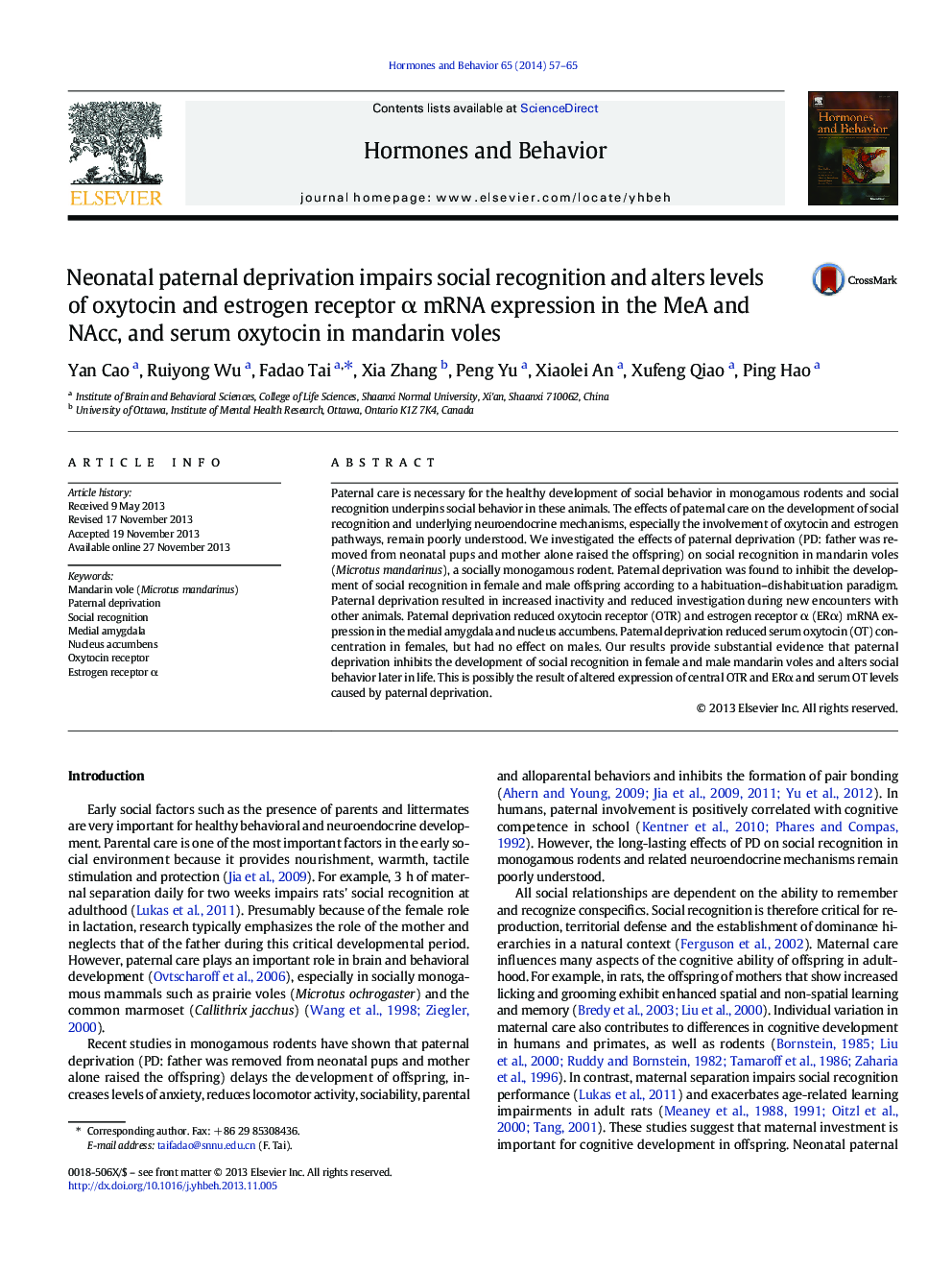| Article ID | Journal | Published Year | Pages | File Type |
|---|---|---|---|---|
| 322733 | Hormones and Behavior | 2014 | 9 Pages |
•Paternal deprivation impairs social recognition in both sexes of mandarin voles.•Paternal deprivation reduces serum oxytocin in females.•Paternal deprivation reduces OTR mRNA expression in the MeA and NAcc.•Paternal deprivation reduces ERα mRNA expression in the MeA.
Paternal care is necessary for the healthy development of social behavior in monogamous rodents and social recognition underpins social behavior in these animals. The effects of paternal care on the development of social recognition and underlying neuroendocrine mechanisms, especially the involvement of oxytocin and estrogen pathways, remain poorly understood. We investigated the effects of paternal deprivation (PD: father was removed from neonatal pups and mother alone raised the offspring) on social recognition in mandarin voles (Microtus mandarinus), a socially monogamous rodent. Paternal deprivation was found to inhibit the development of social recognition in female and male offspring according to a habituation–dishabituation paradigm. Paternal deprivation resulted in increased inactivity and reduced investigation during new encounters with other animals. Paternal deprivation reduced oxytocin receptor (OTR) and estrogen receptor α (ERα) mRNA expression in the medial amygdala and nucleus accumbens. Paternal deprivation reduced serum oxytocin (OT) concentration in females, but had no effect on males. Our results provide substantial evidence that paternal deprivation inhibits the development of social recognition in female and male mandarin voles and alters social behavior later in life. This is possibly the result of altered expression of central OTR and ERα and serum OT levels caused by paternal deprivation.
